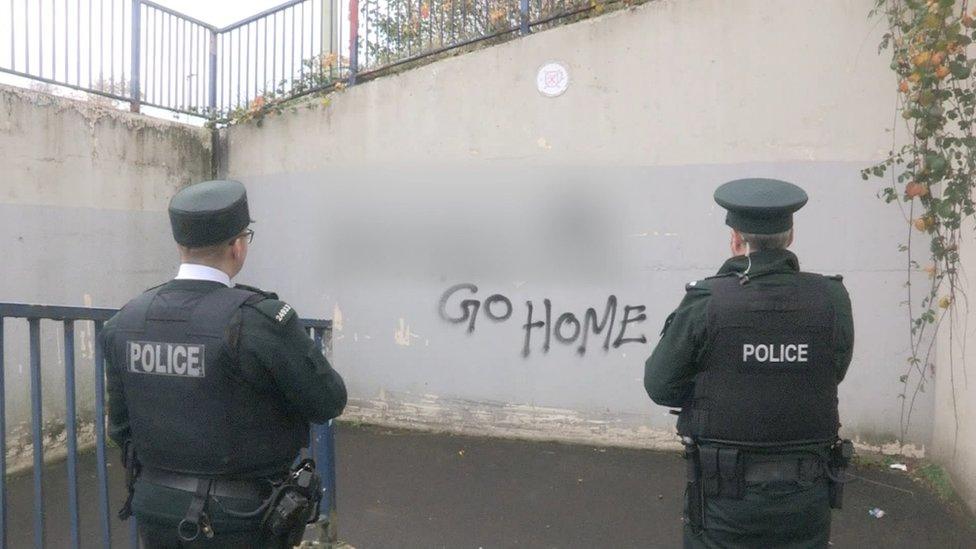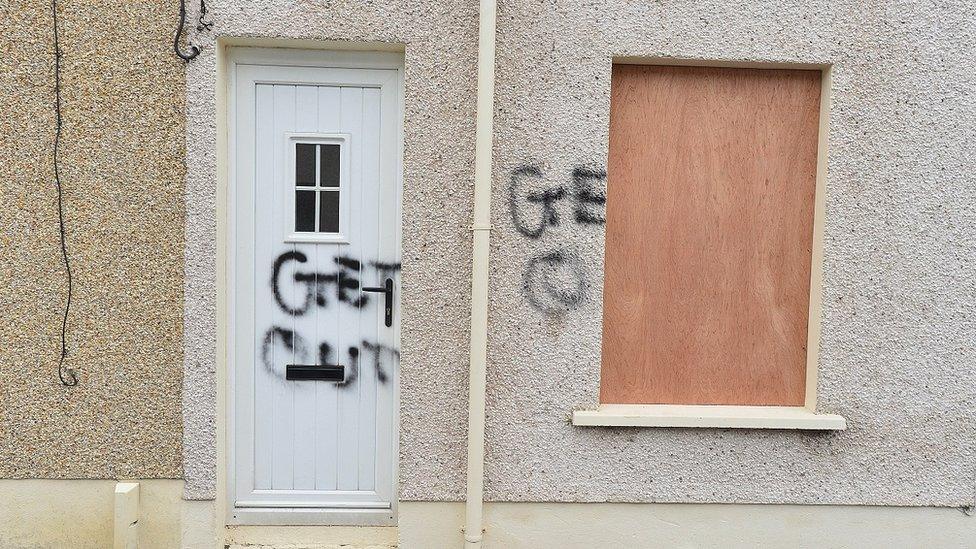Hate crime definition in NI should include gender and age
- Published

The definition of a hate crime in NI should be expanded to include gender and age-motivated offences.
That is one of 34 recommendations contained in a review into hate crime legislation in Northern Ireland carried out by Judge Desmond Marrinan.
"Current legislation is ineffective, it lets victims down and it probably explains why 80% of victims don't go to the police," he said.
Justice Minister Naomi Long said addressing hate crime was a "priority".
Judge Marrinan said "hate crime will no longer be a 'bolt-on', it will be dealt with appropriately from police, through to sentencing courts".
At present, no specific offence of hate crime exists in Northern Ireland.
Under current legislation, a sentence can be increased where it is proven a person was motivated by hostility against a protected characteristic.
Protected characteristics are race, religion, sexual orientation or disability.
"I propose adding sex/gender and age," said Judge Marrinan.
He said the internet had led to "dreadful trolling" of women, particularly those in politics and other positions of power.
"They are attacked ruthlessly and aggressively, and sometimes tragically," he said.
"There is a wealth of information that women are frequently assaulted - and they sometimes can be assaulted or attacked for other reasons - but very often it's an assault on them because they are women."
Judge Marrinan also recommended Northern Ireland should add transgender to its legal definition, but urged it to be broadened further to include all crimes with a gender-based motive.

Judge Marrinan said if his recommendations were adopted it would be a "complete change" to how hate crimes were dealt with in NI
In the review, commissioned by the Stormont executive, he said there was "sufficient evidence of hostility-based offences against the elderly to include age as a protected characteristic".
Judge Marrinan recommended that statutory aggravations should be added to all existing offences in Northern Ireland, similar to a model adopted in Scotland.
This would mean that any criminal offence could be charged in its aggravated form.
In reality someone accused of assault could be charged with a standard assault or an aggravated assault on the basis of it being motivated by "hostility, bias, prejudice, bigotry or contempt" against one of the protected characteristics.
Those convicted of aggravated charges would face stiffer penalties.
"It would be a sea change in terms of attitude, because it would mean the police, for example, would have to take the hate element into account when investigating the crime," Judge Marrinan said.

"The prevalence of hate crime in Northern Ireland and its rise suggests that Northern Ireland's society as a whole needs to address the problem of hate crime in a holistic way.
"Improvements in the criminal law need to be supported by educative schemes and preventative strategies," said Judge Marrinan.
He said a "general expectation arising from the consultation process for this review, I would advocate that all education sectors in Northern Ireland need to address the problem of hate crime, as do private and public sectors of employment".
The justice minister welcomed the review, saying its completion was "an important first step in addressing the issue".
"The recommendations in his final report are complex and wide-ranging and people may hold contrasting views on some of them," said Mrs Long.
"That is why I want to take some time to give them careful consideration.
"Hate crime in any form is unacceptable and addressing it is one of my priorities. Whether offline or online, targeting a person because of who they are or what they believe - be it their race, religion, political belief, sexuality, gender identity or disability - is wrong."